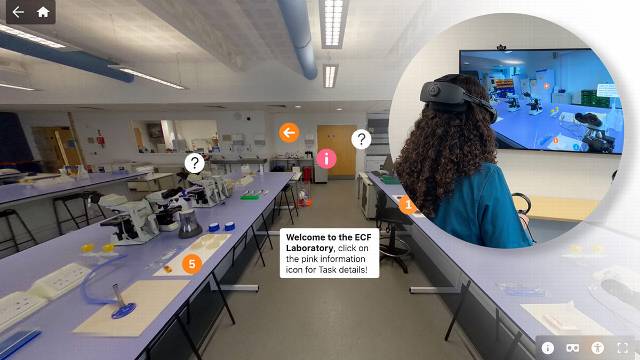A Harper Adams expert has appeared on BBC Radio Four to talk about plant pests and diseases – and the effect that recent heavy rainfall has had upon each.
Throughout this week, Farming Today has been examining the impacts of pests and disease, and they spoke to Reader in Entomology and Integrated Pest Management Dr Tom Pope about how the weather has changed what kinds of each farmers may be facing – and when they may be facing them.

He said: “We’ve seen some really serious problems with continued heavy rainfall over the last few months.
“Some pests, as we know, benefit from mild damp conditions – and I am thinking here particularly of slugs, and we have seen a lot of slug damage in crops around the country. Slugs’ activity is really determined by temperatures being warm enough – above five degrees – and then a damp surface to move across, and we’ve obviously had lots of those conditions over the last few months.
“Perhaps more tellingly, the absence of low temperatures and hard frosts means that disease and pests have survived the winter in much higher numbers than we might have expected in typical years.
“Pests like aphids – it means that they fly earlier in the year and in higher numbers, and we are seeing that in catches of aphids from around the country, so that’s going to put pressure on crops, particularly with viruses coming into crops such as sugarbeet and in cereals.”
Dr Pope also talked about the importance of an integrated approach to pest management to help tackle some of the issues farmers will face this season now regulations on certain pesticides have changed.
He added: “By that, what I mean is we move away from a reliance on a ‘silver bullet’ type approach, where we have had very effective synthetic pesticide options – and I am thinking here of pests like Cabbage Stem Flea Beetle – it would be a good example where we have a menu of options, but importantly none of them are likely to be effective on their own. It’s about bringing together a number of strategies, a combination of cultural controls, different argonomic practices that we are using, the varieties we are growing – but it is not a simple silver bullet through the pesticide can any more.”
Listen again to the whole interview – and Dr Pope’s thoughts on importance of integrated pest management in crop protection – here.
 Blog: Veterinary Medicine students step into immersive 360° laboratory
At Harper & Keele Veterinary School, students are stepping beyond the traditional microbiology bench and into an immersive 360° labo …
Posted
Yesterday
Blog: Veterinary Medicine students step into immersive 360° laboratory
At Harper & Keele Veterinary School, students are stepping beyond the traditional microbiology bench and into an immersive 360° labo …
Posted
Yesterday





